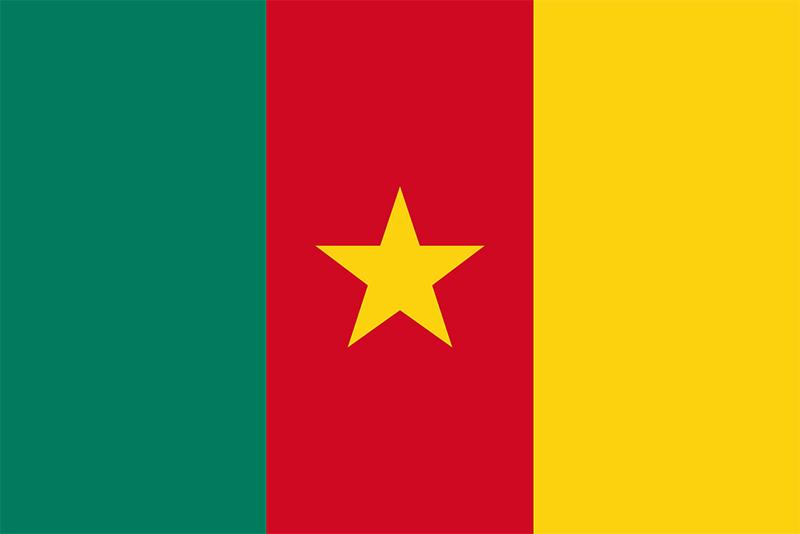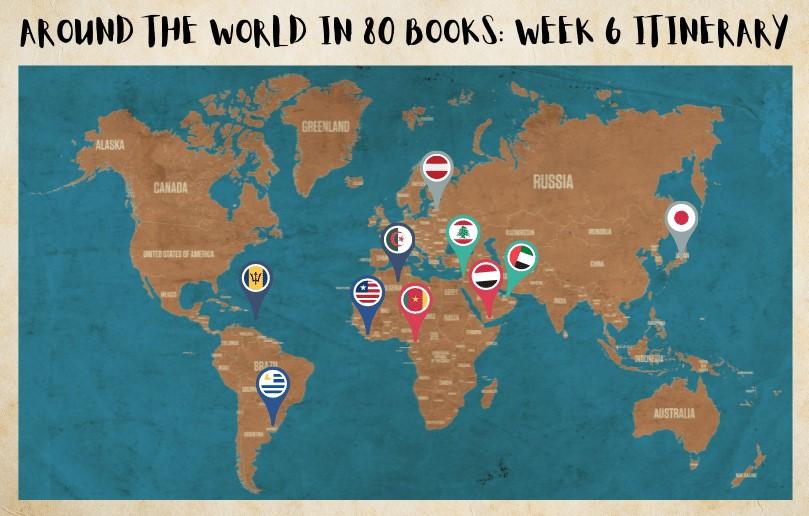
Welcome to week 6 of Tower Road Branch's world tour: Around the World in 80 Books! Over the course of 8 weeks I'll be recommending 80 books set in 80 different places around the globe. All the locations included in our journey will be chosen completely at random using the random country generator from randomlists.com.
Where will fate take us next?
If you missed the first five weeks of our tour, check them out here:
Otherwise, let's jump right in and head over to.....

Cameroon
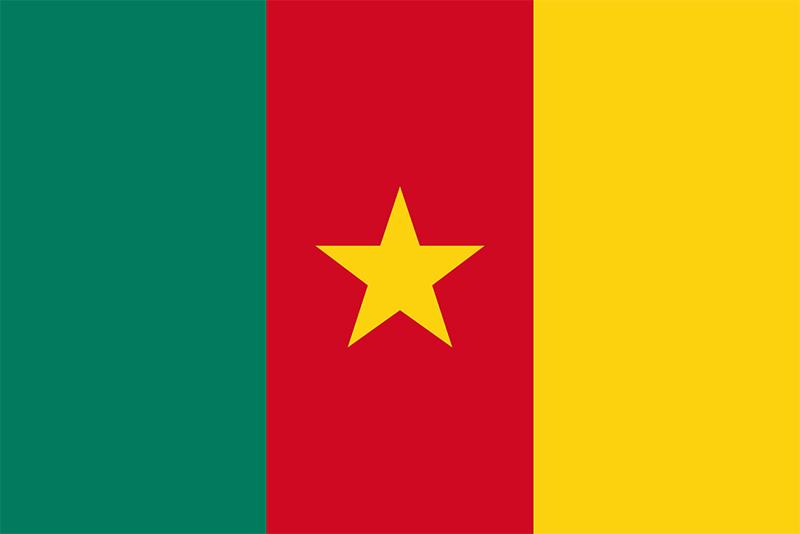
When the Plums Are Ripe by Patrice Nganang [2019]

Moving from Pouka’s story to the campaigns of the French general Leclerc and the battles of Kufra and Murzuk, Nganang questions the colonial record and recenters African perspectives at the heart of Cameroon’s national history, all the while writing with wit and panache. When the Plums Are Ripe is a brilliantly crafted, politically charged epic that challenges not only the legacies of colonialism but the intersections of language, authority, and history itself.
Learn more about Cameroon | Find more resources on Cameroon

Barbados

How the One-Armed Sister Sweeps Her House by Cherie Jones [2021]

In Baxter Beach, Barbados, moneyed ex-pats clash with the locals who often end up serving them: braiding their hair, minding their children, and selling them drugs. Lala lives on the beach with her husband, Adan, a petty criminal with endless charisma whose thwarted burglary of one of the Baxter Beach mansions sets off a chain of events with terrible consequences. A gunshot no one was meant to witness. A new mother whose baby is found lifeless on the beach. A woman torn between two worlds and incapacitated by grief. And two men driven by desperation and greed who attempt a crime that will risk their freedom -- and their lives.
Learn more about Barbados | Find more resources on Barbados

Lebanon

The Arsonists' City by Hala Alyan [2021]

The Nasr family is spread across the globe—Beirut, Brooklyn, Austin, the California desert. A Syrian mother, a Lebanese father, and three American children: all have lived a life of migration. Still, they’ve always had their ancestral home in Beirut—a constant touchstone—and the complicated, messy family love that binds them. But following his father's recent death, Idris, the family's new patriarch, has decided to sell.
The decision brings the family to Beirut, where everyone unites against Idris in a fight to save the house. They all have secrets—lost loves, bitter jealousies, abandoned passions, deep-set shame—that distance has helped smother. But in a city smoldering with the legacy of war, an ongoing flow of refugees, religious tension, and political protest, those secrets ignite, imperiling the fragile ties that hold this family together.
In a novel teeming with wisdom, warmth, and characters born of remarkable human insight, award-winning author Hala Alyan shows us again that “fiction is often the best filter for the real world around us” (NPR).
Learn more about Lebanon | Find more resources on Lebanon

Algeria

Our Riches by Kaouther Adimi [2017]
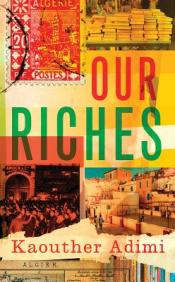
Our Riches interweaves Charlot’s story with that of another twenty-year-old, Ryad (dispatched in 2017 to empty the old shop and repaint it). Ryad’s no booklover, but old Abdallah, the bookshop’s self-appointed, nearly illiterate guardian, opens the young man’s mind. Cutting brilliantly from Charlot to Ryad, from the 1930s to current times, from WWII to the bloody 1961 Free Algeria demonstrations in Paris, Adimi delicately packs a monumental history of intense political drama into her swift and poignant novel. But most of all, it’s a hymn to the book and to the love of books.
Learn more about Algeria | Find more resources on Algeria

Yemen

The Wild Fox of Yemen: Poems by Threa Almontaser [2021]

Learn more about Yemen | Find more resources on Yemen

Uruguay

Cantoras by Carolina De Robertis [2019]

In 1977 Uruguay, a military government crushed political dissent with ruthless force. In this environment, where the everyday rights of people are under attack, homosexuality is a dangerous transgression to be punished. And yet Romina, Flaca, Anita "La Venus," Paz, and Malena--five cantoras, women who "sing"--somehow, miraculously, find one another. Together, they discover an isolated, nearly uninhabited cape, Cabo Polonio, which they claim as their secret sanctuary. Over the next thirty-five years, their lives move back and forth between Cabo Polonio and Montevideo, the city they call home, as they return, sometimes together, sometimes in pairs, with lovers in tow, or alone. And throughout, again and again, the women will be tested--by their families, lovers, society, and one another--as they fight to live authentic lives.
A genre-defining novel and De Robertis's masterpiece, Cantoras is a breathtaking portrait of queer love, community, forgotten history, and the strength of the human spirit. At once timeless and groundbreaking, Cantoras is a tale about the fire in all our souls and those who make it burn.
Learn more about Uruguay | Find more resources on Uruguay

Liberia

She Would Be King by Wayétu Moore [2018]

Wayétu Moore’s powerful debut novel, She Would Be King, reimagines the dramatic story of Liberia’s early years through three unforgettable characters who share an uncommon bond. Gbessa, exiled from the West African village of Lai, is starved, bitten by a viper, and left for dead, but still she survives. June Dey, raised on a plantation in Virginia, hides his unusual strength until a confrontation with the overseer forces him to flee. Norman Aragon, the child of a white British colonizer and a Maroon slave from Jamaica, can fade from sight when the earth calls him. When the three meet in the settlement of Monrovia, their gifts help them salvage the tense relationship between the African American settlers and the indigenous tribes, as a new nation forms around them.
Moore’s intermingling of history and magical realism finds voice not just in these three characters but also in the fleeting spirit of the wind, who embodies an ancient wisdom. “If she was not a woman,” the wind says of Gbessa, “she would be king.” In this vibrant story of the African diaspora, Moore, a talented storyteller and a daring writer, illuminates with radiant and exacting prose the tumultuous roots of a country inextricably bound to the United States. She Would Be King is a novel of profound depth set against a vast canvas and a transcendent debut from a major new author.
Learn more about Liberia | Find more resources on Liberia

Japan

Where the Wild Ladies Are by Aoko Matsuda [2016]

A busybody aunt who disapproves of hair removal; a pair of door-to-door saleswomen hawking portable lanterns; a cheerful lover who visits every night to take a luxurious bath; a silent house-caller who babysits and cleans while a single mother is out working. Where the Wild Ladies Are is populated by these and many other spirited women—who also happen to be ghosts. This is a realm in which jealousy, stubbornness, and other excessive "feminine" passions are not to be feared or suppressed, but rather cultivated; and, chances are, a man named Mr. Tei will notice your talents and recruit you, dead or alive (preferably dead), to join his mysterious company.
In this witty and exuberant collection of linked stories, Aoko Matsuda takes the rich, millenia-old tradition of Japanese folktales—shapeshifting wives and foxes, magical trees and wells—and wholly reinvents them, presenting a world in which humans are consoled, guided, challenged, and transformed by the only sometimes visible forces that surround them.
Learn more about Japan | Find more resources on Japan

United Arab Emirates

Temporary People by Deepak Unnikrishnan [2017]
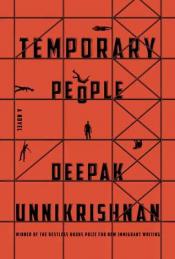
In the United Arab Emirates, foreign nationals constitute over 80 percent of the population. Brought in to construct the towering monuments to wealth that punctuate the skylines of Abu Dhabi and Dubai, this labor force works without the rights of citizenship, endures miserable living conditions, and is ultimately forced to leave the country. Until now, the humanitarian crisis of the so-called “guest workers” of the Gulf has barely been addressed in fiction. Deepak Unnikrishnan delves into their histories, myths, struggles, and triumphs. Unnikrishnan presents twenty-eight linked stories that careen from construction workers who shapeshift into luggage and escape a labor camp, to a woman who stitches back together the bodies of those who’ve fallen from buildings in progress, to a man who grows ideal workers designed to live twelve years and then perish—until they don’t, and found a rebel community in the desert.
Learn more about The United Arab Emirates | Find more resources on The United Arab Emirates

Latvia


Journeying back to their remote village, Inara comes to know Ausma and her trauma as an exile to Siberia under Stalin, while reconstructing Livija’s survival through her years as a refugee. In uniting their stories, Inara honors both sisters in a haunting and luminous account of loss, survival, resilience, and love.
Learn more about Latvia | Find more resources on Latvia
Where to next? Find out in Around the World in 80 Books: Week 7
